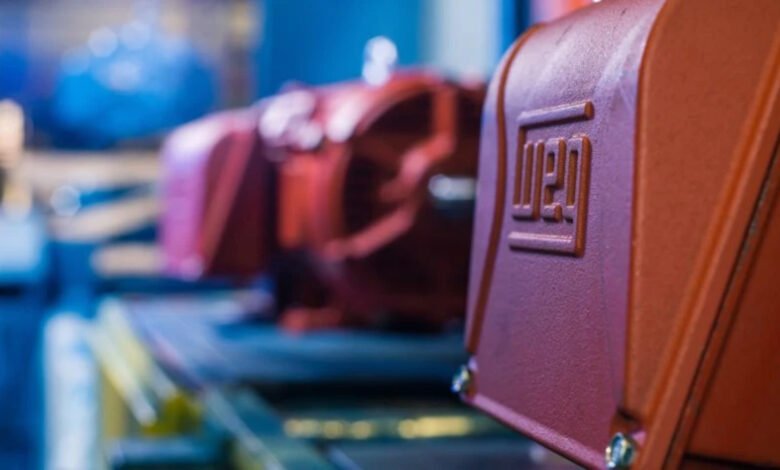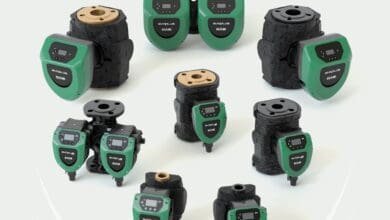Will WEG’s acquisition be a game changer?

As reported in the news section of this issue of Flow, the world’s second-largest low-voltage AC motor manufacturer, WEG, has acquired the industrial electric motors and generators business from Regal Rexnord for $400m. Vanessa Lopez, Research Analyst at Interact Analysis, looks at the impact the move could have on the motor market.
WEG’s acquisition includes most of Regal Rexnord’s Industrial Systems segment, which comprises the Marathon, Cemp and Rotor brands. While Regal Rexnord will continue to operate its commercial motor business, this move represents a significant divestiture from the low-voltage motor market by the company. Conversely, WEG, a company that has rapidly expanded its share within the low-voltage motor market in recent years, will add hundreds of millions in revenue to its motor business through one of the most significant acquisitions the market has seen in a decade.
Under this agreement, WEG will gain around 2,800 employees across ten factories in seven countries: Canada, China, India, Italy, Mexico, the Netherlands and the United States. In 2022, the estimated net operating revenue of the included businesses was $541m, with an adjusted EBITDA margin of 9.5%. The transaction is expected to close in the first half of 2024.
Commenting on the acquisition, WEG’s President, Harry Schmelzer Jr., said: “The geographical distribution of these operations complements WEG’s current presence and will help achieve greater scale and cost efficiency as we integrate the new operations with the existing ones. With a long history in the market and a global presence, this acquisition will support the ongoing growth of the WEG Group in the industrial electric motors and generators markets through the incorporation of recognised brands and a product line that complements the Group’s current portfolio.”
Since the merger of Regal Beloit and Rexnord in 2021, Regal Rexnord has struggled to maintain its competitiveness in the low-voltage motor market, losing market share every year since the merger’s announcement. To Regal’s competition, it quickly became clear that the new company was not interested in expanding its industrial motors business and was instead focused on building capabilities more aligned with segments like HVAC/R and material handling. This led to market share being taken by competitors and ultimately led to an underperforming business unit within Regal Rexnord.
This underperformance is demonstrated by a sale price of just $400mn – a fire sale by all accounts. This would represent the second major acquisition by WEG for a price under the annual revenue of the entity being acquired. In 2022, WEG acquired Gefran’s motion control business for a price that was half of the entity’s annual revenue.
Over the past few years, WEG has seen significant growth in its share of the low-voltage AC market. According to Interact Analysis’ most recent low voltage AC motor market report, WEG has grown its share of the LV AC motor market by 2.5% since 2020 – a significant jump for such a large business. This rapid rise can be attributed to the company’s performance amidst post-pandemic supply chain constraints. While every motor vendor faced supply chain issues, WEG’s significant vertical integration allowed it to operate with shorter lead times. This led to WEG capturing market share from those who could not meet the lead-time demands of customers. This jump in market share has narrowed the gap between WEG and leading supplier ABB.
Now, with the recent acquisition, WEG has the potential to become number one in the market within the next few years. Outside of the immediate addition to its revenue that WEG will see, this acquisition also provides significant long-term opportunities. According to a statement given to Valor International by Alberto Kuba, the managing director of WEG’s Motor Business, the manufacturing plants acquired as part of this deal have the capability to operate at a much higher capacity. During a visit to the plants it was observed that they were only running at 50% of their capacity, with only one assembly shift. In contrast, WEG runs continuously at almost all of its plants. Kuba stated that the production volume could theoretically be doubled within the existing structure.
There are concerns surrounding the possible challenges of integrating the acquired entity within WEG’s business. Regal Rexnord and WEG have historically been each other’s most significant competition, overlapping heavily in many of their target verticals. As a result of this rivalry, harmoniously merging two direct competitors will be more of a lengthy process than other acquisitions WEG has undertaken. From our point of view, however, regardless of the length of time taken to fully integrate the Regal Rexnord business with WEG, this acquisition can only expand WEG’s presence in the motor market.








